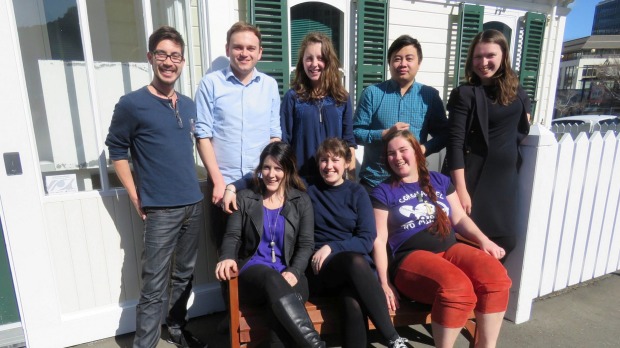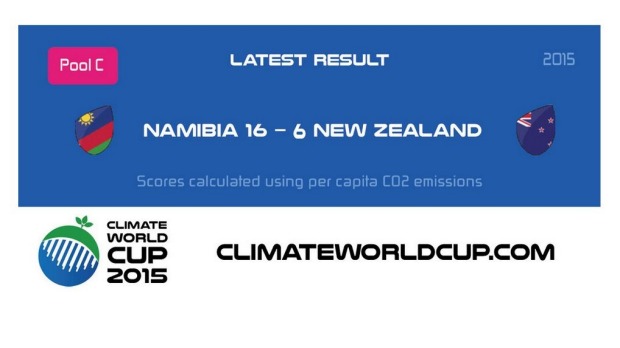 |
| Reviews and Templates for Expression We |
New Zealand fails to dominate at Climate World Cup

Members of the New Zealand Youth Delegation have created a Climate World Cup website comparing New Zealand's contributions to global warming with those of our rugby world cup opponents.
World cup minnows Namibia have crushed New Zealand. The score? 16 - 6 to the Africans.
Of course, this isn't a game of rugby. It's the latest result in our country's Climate World Cup campaign.
The Climate World Cup compares New Zealand's contributions to fighting climate change with the efforts of our Rugby World Cup opponents. So far, the Kiwis have not fared well.

In the latest result from New Zealand's Climate World Cup campaign, we went down to minnows Namibia.
The website is a project by the New Zealand Youth Delegation (NZYD), a group of eight young Kiwis who will travel to Paris later this year to speak on behalf of Kiwi youth at the 2015 United Nations Climate Change Conference.
Christchurch 24-year-old Natalie Jones, a masters student at the Cambridge University, is a member of the delegation. She says the idea came about from thinking about how New Zealand often excels on the international stage despite the country's small size.
"New Zealand punches above its weight on all sorts of things, including rugby. But on climate change we're lagging behind," she says.
"We thought this would be a fun, witty way to get the discussion going."
However lacklustre the All Blacks have been in Britain, they have performed better than New Zealand has in the Climate World Cup.
In the climate tournament, scores are calculated by comparing New Zealand's carbon emissions with those of our rugby opponents. We were hammered 41 - 0 by Argentina, based on the difference between our countries' carbon intensity relative to our GDP per capita. Our 16 - 6 loss to Namibia was calculated using both nations' per capita carbon dioxide emissions.
Jones says the NZYD had hoped to use the same criteria across all the match-ups, but that was impossible because nations use different measures for emissions. However, they always used the same criteria when pitting New Zealand against its opponent of the day.
Each match is accompanied by a write-off which mocks members of New Zealand's climate negotiations "team", like Minister for Transport Simon Bridges or Climate Change Issues
Minister Tim Groser.
Jones says New Zealand's politicians are not doing enough about climate change.
"It's getting a bit ridiculous how much our politicians are ignoring the issue," she says.
"We're absolutely not doing our fair share."
That message is particularly pertinent in the lead-up to the Paris summit. The meeting will be attended by every country in the UN, including New Zealand, in the hope of hammering out a binding international agreement to curb carbon emissions in the hope of mitigating the potentially catastrophic impact of global warming.
Jones says it is a "real opportunity for world leaders to take action".
But New Zealand is not among those leading the world. In fact, we are "on track" to become the most carbon-intensive country in the world within ten years, Jones says.
She thinks we should be doing more to help our Pacific neighbours, nations which will bear the brunt of climate change's most
"We're happy to beat them in the [Rugby] World Cup, but we're not helping them where it really matters."
|
|
|
|
Copyright 2011 Energy and Technical Services Ltd. All Rights Reserved. Energyts.com |